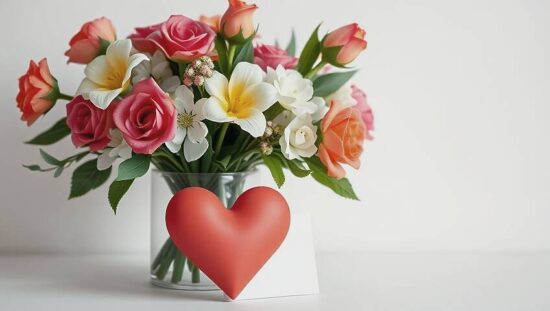Without a doubt, environmental organizations are advising against the purchase of cut flowers for Valentine’s Day, deeming it a reckless move amidst winter. According to Corinna Hölzel from the Bund für Umwelt und Naturschutz (BUND), the production of fresh bouquets sold at this time of the year is often questionable and detrimental to the environment and climate. Waltraud Novak from the Austrian environmental organization Global 2000 also warns of the cut flowers, which are often imported from overseas. “We have known for almost two decades that cut flowers are heavily contaminated with pesticides” she said, “and the situation has unfortunately not improved over the years.” The contaminations are partly ten times higher than in food products. The EU has yet to establish a limit for these substances.
Around 80 percent of the cut flowers sold in the country originate from abroad, primarily from the Netherlands, Kenya, Italy, Ethiopia, Zambia, or Ecuador. According to Global 2000, many of the bouquets are heavily contaminated with chemicals. In a study from last May, the organization found 79 different pesticides on the 16 examined bouquets. On average, each bouquet was contaminated with 14 pesticides and one bouquet even had 32 different active substances detected. Three-quarters of the arrangements were also contaminated with substances that are no longer allowed in the EU, as they are considered particularly harmful and health-damaging.
Industry representatives responded differently to the criticism. Unfortunately, no one was available for an interview, according to the Spiegel, at the flower retailer Blume 2000. Andrea Kirchhoff from the Association of German Flower and Plant Wholesale and Retail defended the business, stating that producers and traders have been dealing with sustainability issues for decades and the industry is “sensitized”. Although a corresponding certification is not mandatory, it has become “almost a standard”.
“Our industry still has a problem with sustainability” said Aron Gelbard, CEO of the British Bloom & Wild Group, the largest online flower retailer in Europe, “the standards are not high enough, in terms of pesticide and water use.” Bloom & Wild relies on recyclable packaging and is testing sea transport. The company plans to use sea transport for flowers from Kenya, Costa Rica, or Colombia in the future, which would result in a further 10 to 20-fold reduction of the carbon footprint, according to Gelbard.





